
If you haven’t yet heard about the Enneagram, you will. The centuries-old, personality typing system—that suggests there are 9 basic personalities present in the world—has caught fire over the last several years, particularly among people of faith. And for good reason: it’s actively helping people of all ages and backgrounds discover who they are, why they think and act the way they do, and how to move forward into the best version of themselves—who they were created to be. Basically, if we want to follow Jesus with everything we’ve got, we ultimately have to deal with the barriers inside ourselves.
With that in mind, we sought the counsel of people who represent all 9 Enneagram Types and asked them what it looks like to serve others and participate in mission trips from the lens of their personality type. Not surprisingly, we found that how we approach missions and serving others isn’t that different from the way we approach every other aspect of our lives.

How to Serve On Mission Trips, for All 9 Enneagram Types
1. The Perfectionist / The Improver
Mission trips (and serving others in general) allows Type 1’s to enter into the messiness of life they so often want to fix, change or perfect. Heather, a Type 1, says, “I quickly realize that I can't fix it all, but I am compelled by a strong pull toward justice, to be a part of making the world more whole. Not only am I confronted by reality and brokenness in other places, but I'm forced to see myself more clearly, too. The good, the bad and the ugly.”
On mission trips, things Type 1’s usually hide behind, like comfort or a schedule or control, are stripped away. It becomes almost impossible to plan and prepare the way they normally would, so instead they must learn to embrace the unexpected. This means setting aside their agenda and desire to be productive and acknowledge the value in sitting, listening and being. It's a true Mary vs. Martha experience. And Jesus has the same message for 1’s as he did for Martha in Luke 10, “You are worried and upset about many things, but few things are needed—or indeed only one.”
Mission trips can be an incredible growth experience for 1’s if they’re able to step out of the tightly packed box they live in. They can experience a new richness of faith as they lean into the more wide-eyed and carefree traits of Type 7’s. Heather says, “When this happens, I'm not trying to fix it all or control it all, but I'm willing to simply take each moment and relationship as it comes. It isn't my natural tendency and I must fight against my need for control and perfection. But when I let go, I feel like that's when God really shows up in the most unlikely people and places.”
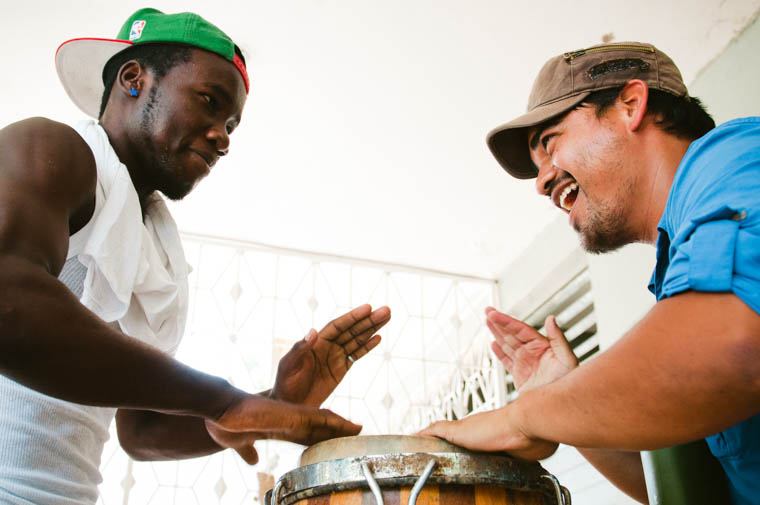
2. The Helper / The Giver
Mission trips can be both the best thing and the worst thing for Type 2’s. Helping others is the “superpower” of the Type 2, but they can easily shift into hyperdrive when they’re confronted with so many needs or ways to help all at once. Lorien, a Type 2 who’s served on mission trips around the world, says, “I want to leave the trip feeling like I did everything I could to be as helpful as I could—at every possible moment. This can be extremely exhausting and has often made me physically sick by the end of a trip. It is important for me to realize that I am on a team of people who all have unique gifts from God, and I do not have to be the only one to do everything or fix everyone's problems.”
But that’s not to say that Type 2’s aren’t in their element on mission trips. They live every moment with eyes open to the needs of others and are uniquely skilled at making connections with people and figuring out how best to serve and help. 2’s have the ability to notice how a small task of service could be an enormous blessing, and they’re often able to go above and beyond the set projects or activities of a mission trip to spend time connecting with people. God often uses 2’s and their gifts to reach out in meaningful ways to those who need to know they’re heard and they matter.
Ironically, this is exactly what Type 2’s need themselves. It can be easy for them to assume they have a solution to the problems they are surrounded by or take on the role of the appreciated, ever-constant helper when it might not be their place. The task of 2’s entering into service and mission trips is to realize their worth is not based on what they bring or do, but who they are. Heidi, another Type 2, says, “As we reassess our intentions and make sure our motives are right, it requires us to see our own brokenness, realizing we are no better than anyone else, and to graciously step in and do what we do best—love, care for, and meet people where they're at in a genuine and authentic way.”

3. The Performer / The Achiever
Type 3’s are tactical, success-oriented problem solvers who always have their eyes on the end goal. This can make 3’s incredibly helpful in a mission trip setting. As Allie, a Type 3 mission trip veteran, says, “A byproduct of seeking success in others' eyes is putting a dedicated effort into every given assignment and truly believing in our ability to accomplish whatever's needed. Talk at our group meeting? Awesome. I've been public speaking from the age of four. Need me to organize a meal for the group? I'm getting us filet mignon. Navigate from basecamp to our destination a few cities over? Co-pilot of the year. If the task is something I'm not awesome at, I'll fake it 'til I make it and chances are things will work out.”
But as the Enneagram tends to show all of us, our greatest strengths can be our greatest weaknesses too. Type 3’s can live with a nagging fear of worthlessness, which leads to doing things in an effort to prove to themselves and the world that they are worthwhile. They can believe the lie that their value comes from outside attention and affirmation (something our culture struggles with in general). And, sadly, that's sometimes why 3’s find missions and serving attractive.
So, how do these success-oriented achievers approach missions in a healthy way? Allie says, “[It starts with] truthfully checking in with myself about the underlying why. Am I saying yes to this in order to look holy/sacrificial/adventurous/faithful, or am I saying yes because this is how I see God using me to bring his kingdom to earth? If I am truthful with myself, sometimes I serve with more attention toward my own image than the God I seek to worship.” Type 3’s will do well to dwell on this truth: God chose us before we could do anything for him. We're valuable because he says so. We're seen. We're known. We’re loved.
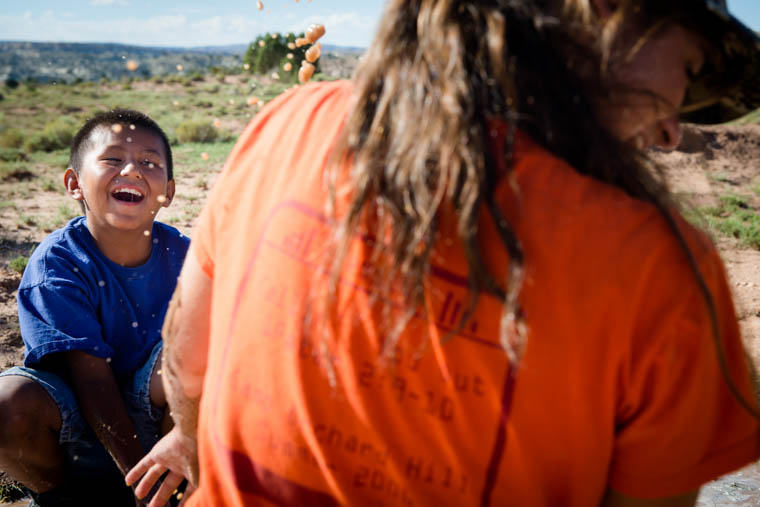
4. The Individualist / The Romantic
For Type 4’s, authenticity is everything. They don’t just desire to check the “serve others” box in their life. Rather, they seek to serve in a way that does something radical in the lives of others. Dave, a Type 4 who’s a church planter and full-time pastor, says, “I push the group to ask and answer the question: Why are we doing this? What do we hope to really accomplish? This can force us to not just go through the motions, or pretend we are making a huge impact if we really are not.” This is an incredible strength that 4’s can bring to a group, but it also has its challenges.
Type 4’s desire to have a significant impact on the world—to leave their mark (potentially in a way that no one ever has before!). This can sometimes come across as idealism, which easily fades and dies in the face of the slow reality of getting in the trenches with those in need. If serving others feels like a mundane process, where nothing “life-changing” seems to be occurring, Type 4’s will either check out or fail to get involved at all. This is truly a sad day for all because of how much good 4’s could potentially offer people by being present and engaging.
When serving on mission trips, Type 4’s need to hear that they don’t have to reinvent the wheel to make an impact. Small things done out of the limelight matter. Dave says, “I’d like to tell [other Type 4’s] that engaging each person matters to God. You don’t get to decide what is worthwhile service or mission, God does. So if he is asking you to surrender your ego or need to be unique... surrender it.” And when Type 4’s are able to step in and join God in the work he is already doing, their authenticity is used to listen, empathize, mourn, and celebrate with each person they encounter. This is truly God’s heart at work in the world.

5. The Observer / The Investigator
Serving on mission trips can be fun, exciting, impactful, and tiring for Type 5’s. As the personality type with the least amount of outward energy (using most of their energy to think, process, and observe), mission trips are an exercise in stepping out of their normal mode of being in the world. Jarrod, a Type 5 who coordinates mission trip communities for EM, says, “I would love to live into [my 5 personality] and disappear at times. I really have to push myself to not do that because I need to be engaging. However, when I push myself and step into my “stress space” of Type 7 [The Enthusiast], I may come across as inauthentic because that is not my normal character. It's actually pretty opposite of who I usually am!”
This is the great tension for 5’s stepping out on mission trips. Will they remain on the fringes, observing but never engaging? Or will they allow themselves to step into potentially stressful situations where their energy will be drained? For those willing to dive in, it’s a lesson in energy management. Type 5’s might find they need to conserve energy before the mission trip by decreasing their social commitments leading up to a trip. During the trip, they may need to pick their moments of full engagement or contribute in more subtle but intentional ways. The best question 5’s can ask themselves is, Am I being present in this moment with the people in front of me?
Type 5’s can really thrive on mission trips as intentional listeners. If we’re striving to serve others well, we always want to take the posture of a listener, learning what people are struggling with and allowing their hopes for the future to shape the way we serve. 5’s can step into this role in a powerful way. Jarrod says, “I have learned that sometimes people just need others to be a listening ear. Advice and feedback are not always needed. Sometimes people just need someone to meet them where they are, hear their story, and not share a conflicting or challenging response. This is where I feel a Type 5 can thrive.”
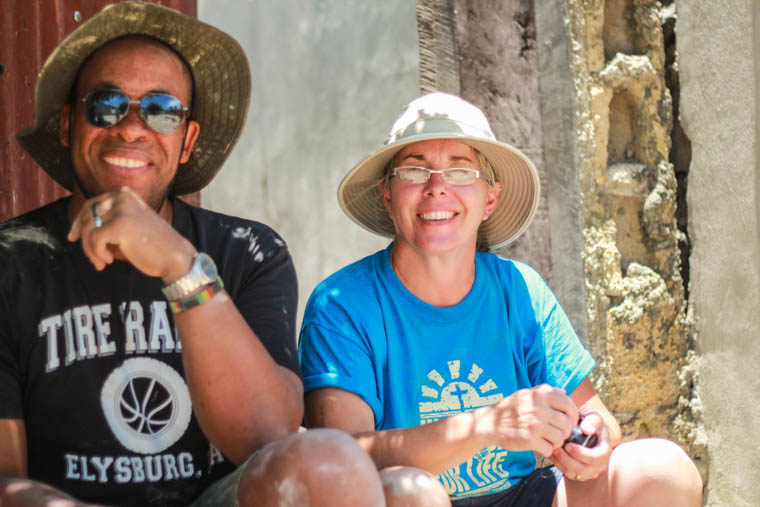
6. The Loyal Skeptic
Fear of the unknown is an incredibly powerful motivator. Just ask any person who identifies as a Type 6. 6’s are constantly thinking through “worst-case scenarios” and either planning for them themselves or identifying the people they trust to lead them through. They can be great team members, but their underlying fear can also sprint to the forefront in situations like mission trips, where almost everything (from the food they eat to the entirely new culture they’re experiencing) is new and untested. Any Type 6 desiring to engage in an experience where “flexibility” is one of the most important attributes deserves a gold star already, but there are a couple things they can do to fully live into any mission trip experience.
The first is mental preparedness. Kristy, a Type 6, says, “I find that the more I know about a community or culture or the history of the place I am serving in, the more intentional and sensitive I can be in how I enter and interact. Learning stories humanizes people and circumstances and also helps assuage any fears or insecurities about the unknown and unfamiliar I might be feeling.” This is meeting fears where they’re at and debunking them with facts, classic Type 6 territory. Armed with enough knowledge to feel safe, prepared, and competent, 6’s are able to walk more confidently into any service and learning opportunity.
But we wouldn’t be doing a great service to 6’s to end there. The true work of a Type 6 in a mission trip context is to understand that they will never be able to prepare for every possibility or quell every fear on their own. 6’s become their best self when they start trusting in God to have their back in every circumstance, regardless of how prepared they are or how new and uncharted everything feels. This is a faith that moves mountains. Type 6’s will do best to meditate on this thought: No matter what, God has always provided for me and always will.

7. The Enthusiast / The Adventurer
Type 7’s bring a ton of energy into the interactions they share with people while serving. Whether it’s with strangers on the street, community members and homeowners, or fellow volunteers, their positivity and excitement can be incredibly refreshing. Service opportunities like mission trips often attract 7’s because of their incredible appetite to be a part of new and interesting experiences. Each day could bring something new and unexpected, each moment an opportunity for 7’s to create a fun, engaging space for everyone around them.
While Type 7’s often lead the charge into uncharted territory, they face real challenges when the excitement wears off. Isaac, a Type 7, says, “When [7’s] begin to feel uncomfortable or miserable, our positivity and optimism implodes, and we can actually be more distracting for others.” At this point, 7’s often shut out any negative emotions about what they are experiencing, which means they miss the conviction and discipline God might be using to refine their character. “When a 7 reaches this unhealthy level of interaction,” Isaac says, “they won't stay committed to the cause. They will check out of what's going on, begin to get homesick, and just start counting down the days until they get to leave. Trust me, I've been there!”
It’s in these situations where Type 7’s need to learn to flex their “superpower” of wide-eyed wonder in a positive way. If they’re able to recognize the wonder of God that is all around them, at any given moment, rather than retreating into their head and shutting down, they can be an incredible force for good in the world. With their hearts and eyes open to what God is already doing in the world, they can almost always find places to engage others, connect across cultural boundaries, and serve in a meaningful way.
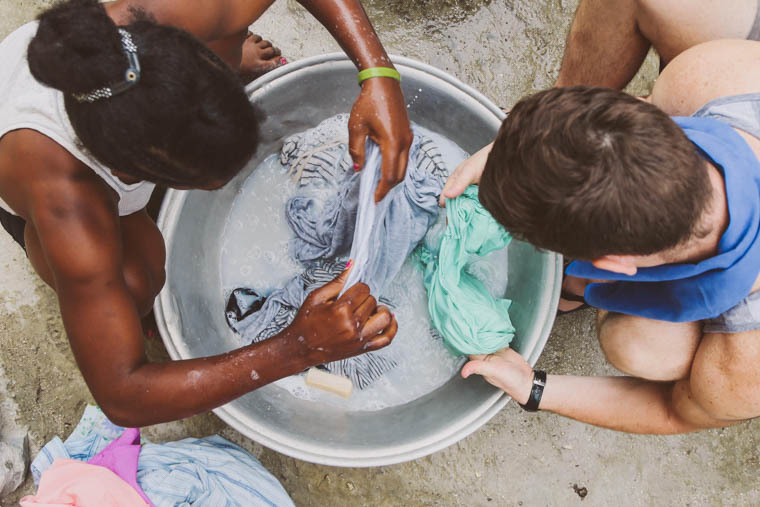
8. The Challenger / The Protector
Type 8’s are strong, take-charge personalities, with a penchant for unintentionally (or intentionally) steamrolling situations and other people. In their normal life, 8’s are used to dominating work, relationships, conversations, and most situations they encounter. While this approach to life sometimes works in their favor, it almost always hits serious roadblocks while serving others on mission trips. Amanda, says, “As an 8, my most humbling experiences have come while serving in missions. Due to the underlying push of pride in nearly every situation, being put in a scenario where my stories and experiences mean next to nothing has been challenging yet fruitful.” And what better setting than a mission trip to set pride aside!
Counterintuitively, Type 8’s are at their best when they are empowering others. Serving on mission trips creates meaningful opportunities for 8’s to lean into helping others and act selflessly. Since they are driven by justice, making space and taking the time to understand and defend marginalized communities comes very naturally. 8’s are also great at identifying strengths in others and bringing out the best in people. This is so helpful when it comes to team dynamics and building meaningful relationships that dignify the people they serve.
All of this amounts to Type 8’s learning to give up control. When they can set aside their ego or their ideas for how something should be done, they’re able to access a new kind of strength: opening up to people and stories they might otherwise miss. Amanda says, “My American mind has an extremely difficult time realizing that I'm wired in my culture for efficiency, not overall experience. Realizing that you are on someone else's turf and don't have much say in how things work out is a great growth area for an 8. I have genuinely learned how to listen. How to meet people where they are at. How to love them for who they are at their core and not by the list of their accomplishments or successes.”
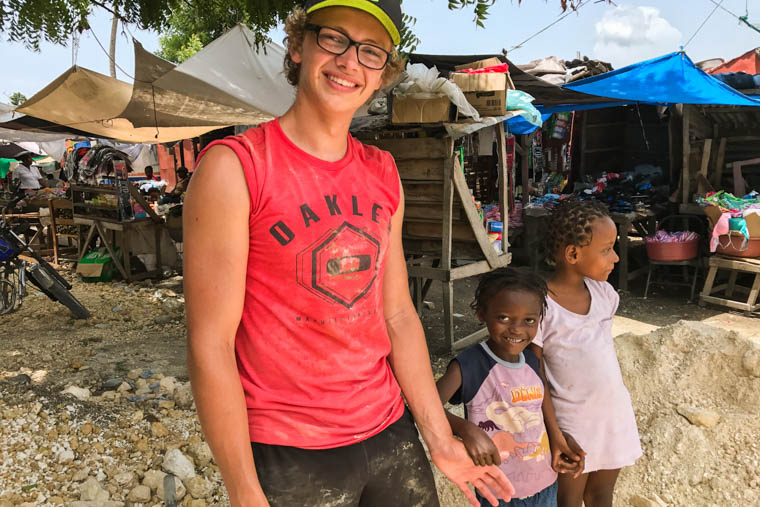
9. The Mediator / The Peacemaker
And finally, Type 9’s. 9’s are a calm, open presence with incredible potential for good in the world, if only they would enter into the fray. As great avoiders of conflict (both outside and inside of themselves), 9’s often go to great lengths to stay in their comfort zone. And serving others, especially on mission trips, is a difficult exercise in leaving that zone far behind. Experiences like these are full of unfamiliar people and places, as well as unexpected and untested situations. Each bringing with it massive potential for conflict or discomfort. In this situation, it can be extremely easy for 9’s to shrink back and let others dive in. But they shouldn’t.
When it comes to issues of justice, Type 9’s burn with just as much inner fire as an 8 or a 1. They’re often simply afraid to let it out. Their ability to see things from all perspectives makes it easy to see systemic injustice or to have compassion for those experiencing poverty or homelessness. D.J., a Type 9 (and compiler of this article), says, “9’s desire for peace in all circumstances makes it really easy to want to serve and love others like Jesus. But in order to actually live up to this potential, we need to remind ourselves that getting uncomfortable is worth it. That stepping out of our comfort zone almost always leads to greater engagement, greater connection, and greater opportunity to bring God’s all-encompassing shalom into the world.”
It can be easy for Type 9’s to feel like their presence doesn’t matter, that they have nothing meaningful to offer, but this couldn’t be further from the truth. However, this lie must be unraveled step by step. As 9’s seek to serve others on mission trips, they would do best to challenge themselves to move out of their comfort zone one simple step at a time, and take notice of the good that comes when they do. This kind of purposeful action is the difference between being a “peacekeeper”—who only cares about maintaining the status quo—and a “peacemaker” who steps into the mess of this world to fight for peace, justice, and wholeness.
—
If the Enneagram shows us anything, it’s that it’s possible for us to approach missions and serving others in wildly different ways than the people around us. Thankfully, we all have a path forward to breaking down the internal roadblocks that stop us from serving and loving people like Jesus in healthy ways that dignify and empower. Hopefully, we’re willing to do the work to get there.
—
Learn to serve and love others like Jesus on a short-term mission trip, 1-9 month IMMERSION program, or by empowering youth in Haiti through RISING.
More Mission Stories


Site developed and hosted by Skycog, Inc.
